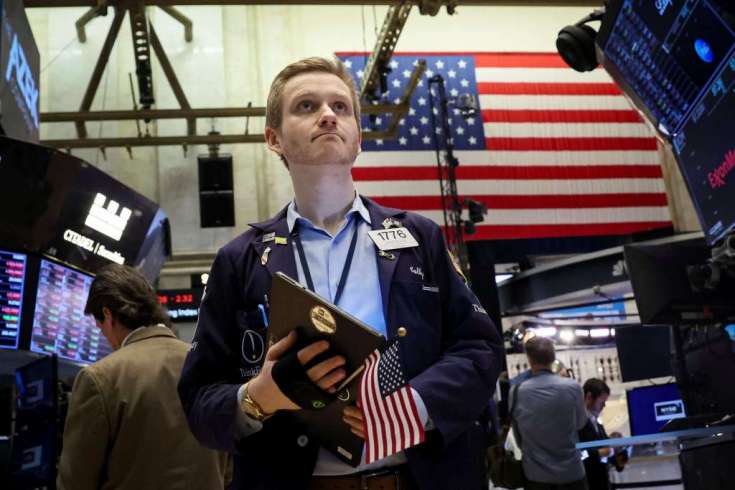
U.S. stock index futures shed prior gains and declined in early morning trading Thursday after the Federal Reserve implemented the largest interest rate hike since 1994.
Futures contracts tied to the Dow Jones Industrial Average dipped 0.21%, or 65 points. S&P 500 futures were down 0.11%, while Nasdaq 100 futures shed 0.21%. All three futures contracts had earlier been trading in positive territory.
The major averages ended Wednesday’s session higher, with the Dow and S&P 500 both snapping five-day losing streaks. The 30-stock benchmark added about 304 points, or 1%, while the S&P 500 advanced 1.46%. The tech-heavy Nasdaq Composite was the relative outperformer, rising 2.5%.
The Federal Reserve on Wednesday announced a 75 basis point rate hike, which had been widely anticipated by the market.
“Clearly, today’s 75 basis point increase is an unusually large one, and I do not expect moves of this size to be common,” Federal Reserve Chairman Jerome Powell said at a news conference following the decision.
Stocks took a leg higher after Powell said that a 50 or 75 basis point increase “seems most likely” at the next meeting in July, indicating the central bank’s commitment to fighting inflation. Powell did caution, however, that decisions will be made “meeting by meeting.”
Individual members’ forecasts show that the Fed’s benchmark rate is now on track to end the year at 3.4%.
“At this point the market has done much of the Fed’s work for them in terms of stocks and bonds selling off over the past week – not to mention the entire year – so it’s not that surprising that both markets moved higher today (stock and bond prices higher; bond yields lower), given that they had sold off so much coming into today’s meeting,” said Chris Zaccarelli, chief investment officer for Independent Advisor Alliance.
Despite Wednesday’s bounce, the major averages are still lower over the last week and month, and remain sharply below their records.
The S&P 500 and Nasdaq Composite are both in bear market territory, down roughly 21% and 32% from their all-time highs in January and November, respectively. The Dow, meantime, is 17% below its Jan. 5 all-time intraday high.
Rampant inflation, which is at the highest level in 40 years, has weighed on the major averages, as have fears around slowing economic growth and the possibility of a recession.
“The market was very prepared, even late to the story,” Morgan Stanley chief U.S. equity strategist Michael Wilson said following the 75 basis point hike announcement. “There’s relief here,” he noted, before adding that the hike won’t solve the inflation problem overnight.
“It also raises the risk of a recession because you’re bringing forward rate hikes even faster, and I don’t think it’s going to help the bond market,” he said on CNBC’s “Closing Bell.”
Economic data out Thursday includes weekly jobless claims numbers, with economists surveyed by Dow Jones forecasting a 220,000 print. Housing starts will also be released, while Adobe and Kroger will report quarterly updates.


